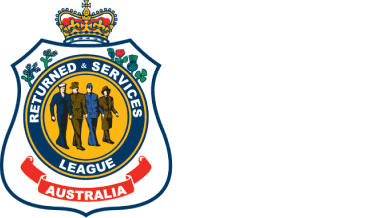Photos: James McPherson
During her first days at Monterey, newly enlisted Women’s Royal Australian Navy Service (WRAN) recruit Jocelyn Smith was shown a secret cabinet where her American superiors kept a pistol and was given strict
instructions about how the weapon was to be used if the Japanese invaded Melbourne.
Death by her own hand would be more merciful than torture, her commanders explained.
It was a brutal baptism of war for the 19-year-old secretary from Geelong who boarded a train “with butterflies in her stomach” to join the war effort to “do her bit”, and unwittingly became a spy.
During World War II, Jocelyn Smith (now Jocelyn Kelso) was one of 80 young women handpicked to work at the top-secret Monterey base in Albert Park after they enlisted with the Navy. Monterey was a joint operation between American, British and Australian Naval Forces — Australia’s version of Bletchley Park — and the WRANS worked around the clock intercepting and decoding messages sent between Japanese forces.
The women vowed to never tell a soul about their highly classified work and although the Leading Writer was discharged from official duty in July 1946, Jocelyn kept that promise for almost eight decades.
Now 96, Jocelyn is sharing her story and thanks to her good friend and legatee, John Graham, she is finally being recognised for her service with a special medal from the UK Government and Bletchley Park.
"I don’t know that I ever really sat my family down and told them what I did. No one really spoke about the war, we all just got on with our lives. I told my grandson first because he was very interested in history and he said to me, ‘Nan you were a spy!’."
Jocelyn Kelso
“I think we achieved a lot in hindsight, but I never thought of myself as a hero — we just did what anyone would do under the circumstances. What I did was nothing compared to a lot of others,” she said humbly.
The Monterey unit operated in Albert Park between 1942 and October 1944. The codebreakers are credited for playing a significant role in the allied victories in the Pacific, including the destruction of a Japanese convoy of more than 5000 army reinforcements and the death of Japanese Admiral Yamamoto, which proved a devastating blow to Japanese morale.
The women were threatened with prison if they told a single soul about their work and most dutifully took their secrets to the grave. Consequently, few were ever acknowledged for the incredible role they played in our war effort.
In 2010, UK Prime Minister David Cameron struck a medal to recognise all those who served with Bletchley Park, an honour extended to their Australian comrades,
including those who worked at the Monterey unit.
When former research scientist John Graham retired, he joined Hamilton & District Legacy to give back to the generation he describes as “selfless, stoic and heroic”, and became Jocelyn’s legatee.
Jocelyn’s husband, Keith Kelso, served in the Air Force but Keith passed away more than 30 years ago.
John’s help and support was welcomed by the fiercely independent widow.
“The first day I turned up, I noticed there was a broken picture frame by the door. I said to her, ‘I can fix that’.
She was thrilled to get the job done and it broke the ice. We started chatting and after a while she said to me, ‘You know I served as well. I’m a widow but I served in the war too.’ And I hadn’t known that. That’s when she started to tell me her story,” John said. “It didn’t take much for me to realise this lady was well worthy of recognition.”
John contacted Bletchley Park in England. Within a few months the medal was on its way to Hamilton in Western Victoria, where Jocelyn lives.
"I don’t think what I did was anything noble and I didn’t really want any fuss about it, but it’s lovely to receive the medal. When I signed up, I was just happy to be sent wherever I was needed."
Jocelyn Kelso
John Graham is thrilled that Bletchley Park acted so quickly on his request for Jocelyn to be recognised and he is organising a special presentation with the Hamilton RSL Sub-Branch for her to be formally honoured. He has now been Jocelyn’s legatee for more than a year; a relationship he treasures.

